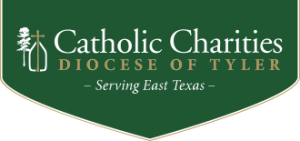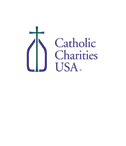Ethical Religious Directives
May the God of hope fill you with all joy and peace as you trust in him, so that you may overflow with hope by the power of the Holy Spirit.
ROMANS 15:13
The United States Conference of Catholic Bishops states that the purpose of the directives is to reaffirm the ethical standards of behavior in healthcare that flow from the Church’s teaching about the dignity of the human person. The directives also provide guidance in applying the moral teachings of the Catholic Church when handling select ethical issues in healthcare and tell the manner in which Catholic Healthcare services must operate. The directives are not meant to change an individual’s personal beliefs.
THE SOCIAL RESPONSIBILITY OF CATHOLIC HEALTH SERVICES
- Respect human worth
- Care for the poor
- Work for the common good
- Use resources wisely
- Follow Church teachings
- Treat people with respect and justice
- Work to make life better for the poor and weak
THE PASTORAL AND SPIRITUAL RESPONSIBILITIES OF CATHOLIC HEALTHCARE
- Every person has a spiritual nature
- Spiritual Health staff care for the religious and spiritual needs of all patients and families
- Spiritual Health staff work together with community clergy
- Sacraments are provided to Catholic patients
THE PROFESSIONAL – PATIENT RELATIONSHIP
- Patient and staff both work to support healing
- Patient and staff must be able to trust each other, be honest, and maintain confidentiality
- Care is given that serves the needs to each person
- Everyone is treated with respect
- Advance Directives, consistent with moral teaching, are respected and honored
- Patients and residents are told about the benefits, risks, sides effects, expected outcomes, and cost of other options before starting care
- Organ donation is supported
- Caregivers use Catholic moral guidelines when making care plans
- An ethics committee is available to help with questions for patients and staff.
ISSUES IN CARE FOR THE BEGINNING OF LIFE
- Catholic healthcare honors life from conception until death
- Some forms of fertility assistance are allowable
- Surrogate parenting is not permitted
- Abortion and elective sterilization are not allowed
- Compassionate care is provided to those who have had an abortion
ISSUES IN CARE FOR THE DYING
- A Catholic Healthcare Service will be a community of respect, love, and support to patients and their families as they face the reality of death
- The task of medicine is to care even when it cannot cure
- We will avoid the use of technology or procedures that offer no reasonable benefit to the patient.
- We may not take away technology with the goal of causing death
- Physician-assisted dying is not permitted
- We will provide food and/or water when it does not cause physical harm or when death is close in time
- Patients should be kept as free of pain as possible
- Pain medicine that may indirectly shorten a person’s life is allowed as long as the intent is not to speed up death
The 7th Edition of the Ethical and Religious Directives (2025) can be found here:
https://www.usccb.org/resources/ethical-and-religious-directives-catholic-health-care-services-seventh-edition
More information about Advance Directives can be found here.




